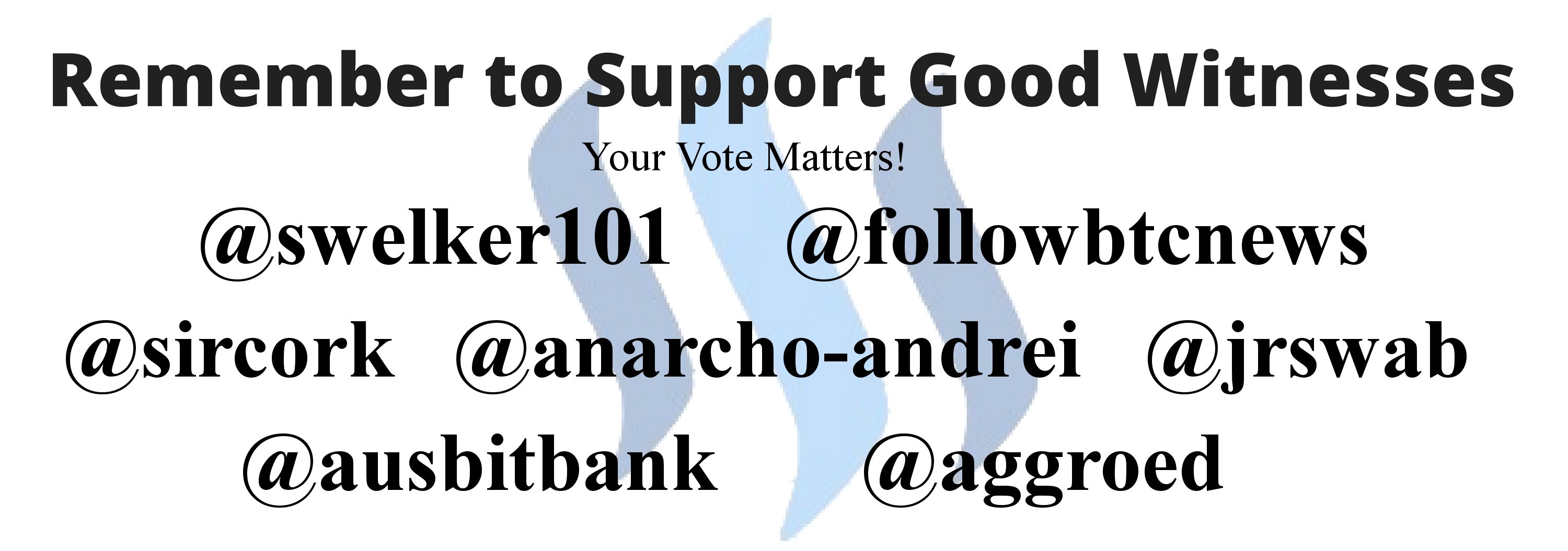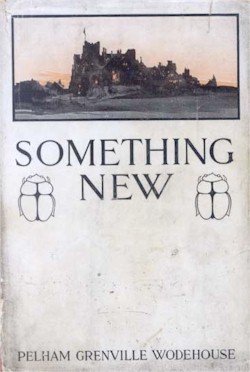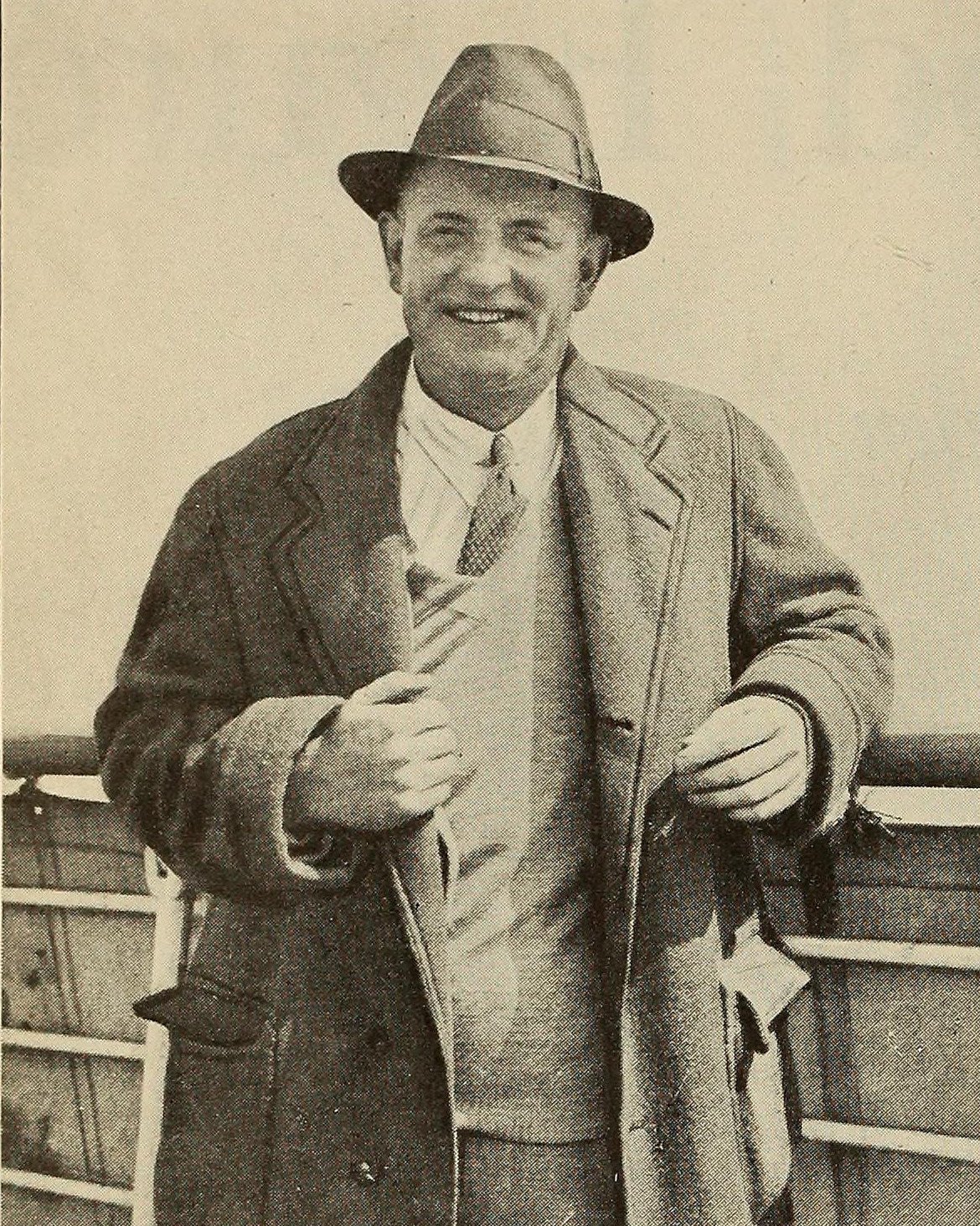.png?w=400)
Within many works of literature, social critique is prominently on display under the medium of storytelling. P.G Wodehouse’s 'Something New' is one such work and the focus of this review. Through analysing the book, I take a look at how the critique is implemented into the narrative and delivered in a manner that did not detract from the story itself—lending an added emphasis to the events of the plot that occurred.
For the “message” of any medium or technology is the change of scale or pace or pattern that it introduces into human affairs.
– Marshall McLuhan “The Medium is the Message”, 1967
Regard to Life
Throughout the book, the reader is exposed to various perspectives concerning the Other, and these views show a clear distinction of socio-economic classes—the distinction being prominent in the USA and UK during the 1910s and continuing through both World Wars as a strong remnant of the Instrustrial Revolution.
Upper Class–Earl of Emsworth
He was as completely happy as only a fluffy-minded old man with excellent health and a large income can be... He was possibly as nearly contented as a human being could be in this century of alarms and excursions.
–Page 26
Despite the average man he seems to see himself as—ignoring any privilege that afforded him this view—Lord Emsworth thinks himself as humbled by his content life. He struggles to fathom the need for the worry he acknowledges the rest of the world has. From his perspective, life is an unnecessarily worrying world and he considers himself spared from trivial matters and disappointment—spared from the rat race of the rest of the population.
It is possible that, lacking the initiative to make his way down the long aisle and find a table for himself, he [Lord Emsworth] might have stood there indefinitely, but for the restless activity of Adams, the head steward. It was Adams' mission in life to flit to and fro, hauling would-be lunchers to their destinations.
–Page 21
Wodehouse spares no subtlety in critique on the upper class throughout 'Something New', showing their disregard for the life of the Other. The perspectives of the Honourable Freddie (Lord Emsworth’s younger son) and Mr. Peters (prospective father-in-law to the Earl’s younger son, Freddie) are of a similar nature.
Middle Class–Ashe Marson
The Wanted column of the morning paper is a sort of dredger, which churns up strange creatures from the mud of London's underworld. Only in response to the dredger's operations do they come to the surface in such numbers as to be noticeable, for as a rule they are of a solitary habit and shun company; but when they do come they bring with them something of the horror of the depths.
–Page 56
Ashe Marson views the lower class as creatures that reside in the shadows and metaphoric sewers of London. He sees himself as above them. Marson shows some form of sympathy toward the lower classes, but only to distinguish himself from them. Through his apparent sympathy he sees them not as people, but as entities unlike himself and those of his status.
In English trains the tipping classes travel first; valets, lady's maids, footmen, nurses, and head stillroom maids, second; and housemaids, grooms, and minor and inferior stillroom maids, third. But for these social distinctions, the whole fabric of society would collapse and anarchy stalk naked through the land.
–Page 65
Later in the story, Ashe Marson ignores the existence of the lowest of the lower class and the plights of those in poverty. He also regards himself as among the members of the lower class, while maintaining a distinction between himself and those of lower socio-economic status. This distinction is a separation of the Self from the Other.
This disdained and disassociated view of the lower class is continued through the perspective of Joan Valentine, while also displaying her view of the upper class activities as trivial and materialistic.
Lower Class–Mr. Adams
Unlike the other characters mentioned, Mr. Adams only features in one scene in the book. This scene, while establishing Lord Emsworth’s character and setting up his present frame of mind, focuses on the character of Adams. His appearance in the story is restricted, not developing further like the other characters. Adams’s inclusion in the story is a means through which Wodehouse displays the order of society to further critique the classes and their perspectives.
You would never have thought it, to look at him when engaged in his professional duties, but Adams had built up a substantial reputation as a humorist in his circle by his imitations of certain members of the club... The Earl of Emsworth ambled benevolently to the door, leaving Adams with the feeling that his day had been well-spent. He gazed almost with reverence after the slow-moving figure.
"What a nut!" said Adams to his immortal soul.
–Pages 23-26
Mr. Adams takes to mockery of the members of the upper class—his position as steward at a club for the senior members of the class affording him the material with which to indulge in the mockery. His mockery is a means of entertaining himself and those around him. In regard to the upper class life, Adams displays contempt and disassociation from himself—and those who share his status—for the members of a higher status.
Adams refrained from expressing an opinion, but inwardly he was thrilling with artistic fervor. Mr. Simmonds eating, was one of his best imitations… To be privileged to witness Lord Emsworth watching and criticizing Mr. Simmonds was to collect material for a double-barreled character study that would assuredly make the hit of the evening.
–Page 23
All through 'Something New', this mockery of the upper and middle classes is presented through the perspectives of the characters situated in the lower class, particularly among the servants of the upper class.
Observations
Wodehouse alludes to several forms of critique of social issues, ranging from sensitive topics to the more commonplace daily life troubles. Through these comments, he shows the differences and similarities of views and habits across socio-economic status.
After looking at the critique of the classes, I explore two other observations in the book and consider the medium of this delivery and the effect the manner of the deliver has on the message of the book.
Sexism
Sexism and the oppression of women in the socio-economic classes remain a prominent issue, though less obvious with class distinction today than in the early 20th Century. Throughout 'Something New', Wodehouse presents the reader with blatant sexism through dialogue of his characters, representing views of people in that time to deliver his critique on oppression. This is especially noteworthy as the book was written in a time when women’s rights were being fought for on a large scale.
Without quoting a significant portion of the book, I narrow the argument to two quotes that best display the sexism Wodehouse perceived and criticised.
“You are much too real a person. What a wife you will make for a hard-working man… I shall be fagged, disheartened. And then you will come with your cool, white hands and, placing them gently on my forehead...”
–Page 37-38
This is a narrative by George Emerson, a middle class lawyer, to Aline Peters during his attempts to court her. The dialogue highlights the views of men concerning women and their idea of a woman’s role and purpose in life as that of servitude to the male portion of society. Wodehouse further remarks on this through Aline’s thoughts on George’s attitude and again on a general critique of the "superman" mentality of young men, which can be seen in the following quote.
… he tells me it is perfectly infernal the way these women carry on. He said sometimes it got to such a pitch, with them waving banners and presenting petitions, and throwing flour and things at a fellow…
–Page 151
The quote above is a recollection of a conversation from Lord Emsworth with another of the upper class about the movement toward establishing voting rights for women. The disdain of the thought that women would be able to vote was shared by Lord Emsworth. In using this narrative, Wodehouse comments on the inconsideration of the Other—in this case being women—through the lack of acknowledgement toward the struggles women endure within society.
The Medium
Conclusion
P.G Wodehouse utilises the medium of humour as a means to deliver the message to introduce awareness of issues within society. While the topics within 'Something New' are still an issue today, the division between upper and lower classes was far more distinctive in the book, and the burden of both classes rested upon the middle class. By ignoring the upper class and placing more strain on the lower, the class gap is driven further apart.
As shown through Wodehouse’s delivery, social critique is best delivered subtly in the medium. The subtle delivery puts less focus on the message and, instead, uses the medium to carry the message through the work. This method allows the reader to think about the issues without forcing them to have an immediate opinion that would cause them to become defensive and potentially block out the message.



